Juliana's Story: A Mother's Fight Against Hunger in Angola
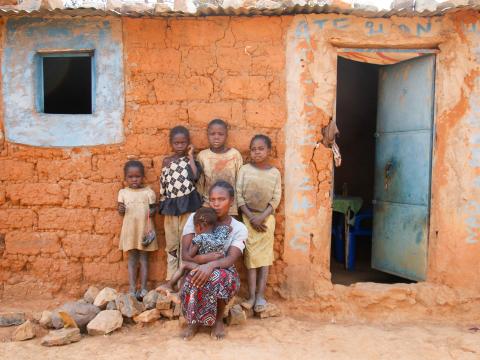
Juliana is a 27-year-old mother of four, living in the community of Caholo, southwest Angola, one of the worst affected by the drought that is plaguing the region. Apart from her four children she also looks after her 10-year-old young sister. Juliana like most women her age in this part of the country didn't have the opportunity to complete her studies, as she had to help her mother support the household from a very young age.
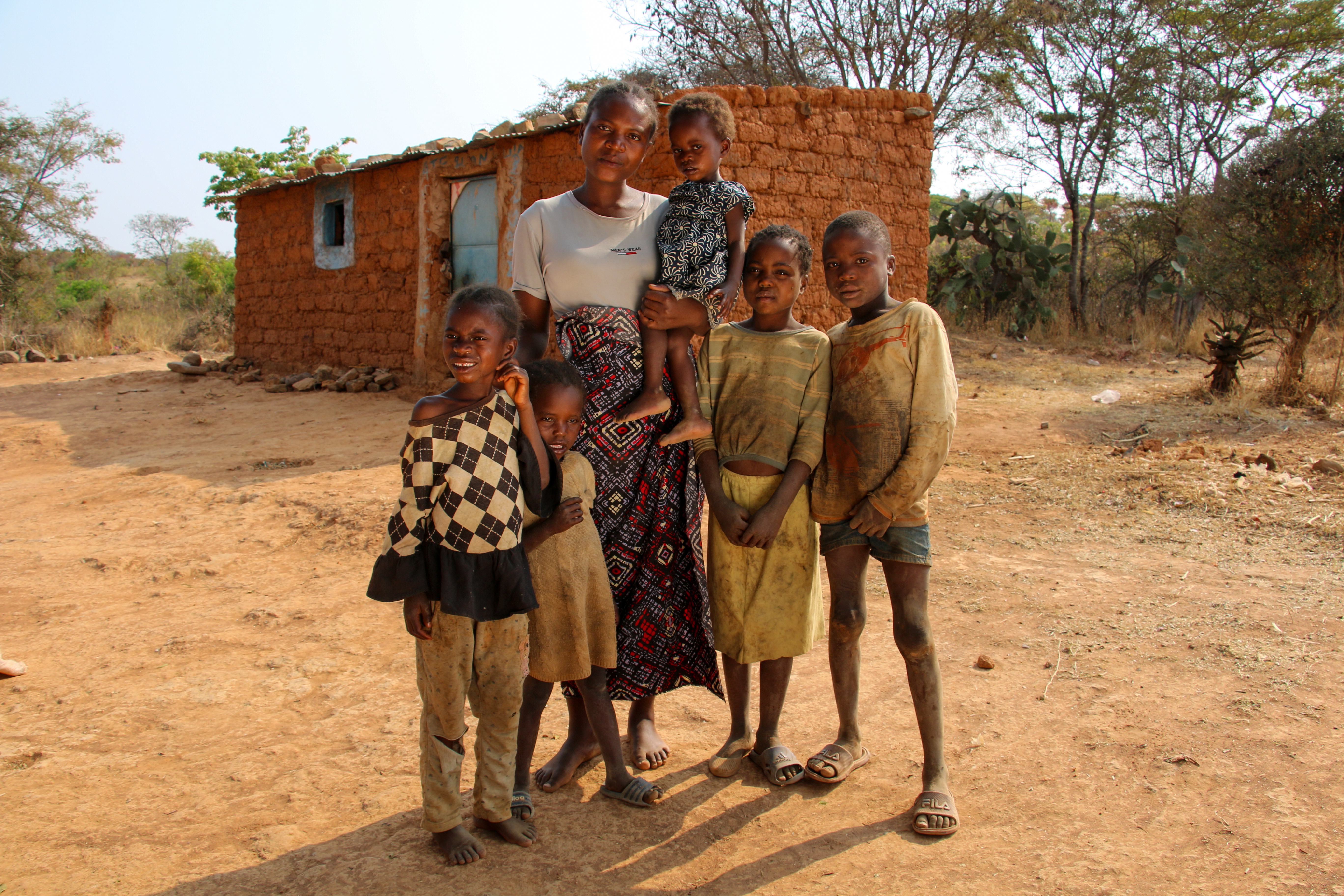
Now as the head of her own house, Juliana survives on the small jobs she does sporadically as a farmer in the neighboring fields, but the small amount of money she earns is barely enough to buy food for her family.
For each day of work, the young woman returns home with Kz 750 (about $1 USD). With this money, she buys a small amount of flour (cassava or maize), with which she prepares a meal for everyone at home. In general, this "fubinha," as she affectionately calls the food, should serve dinner and breakfast, but they don't always manage to make enough for the morning meal.
The biggest difficulty we face here is hunger, we don't have any land, we get something to eat from informal jobs, but it's not enough, says Juliana.
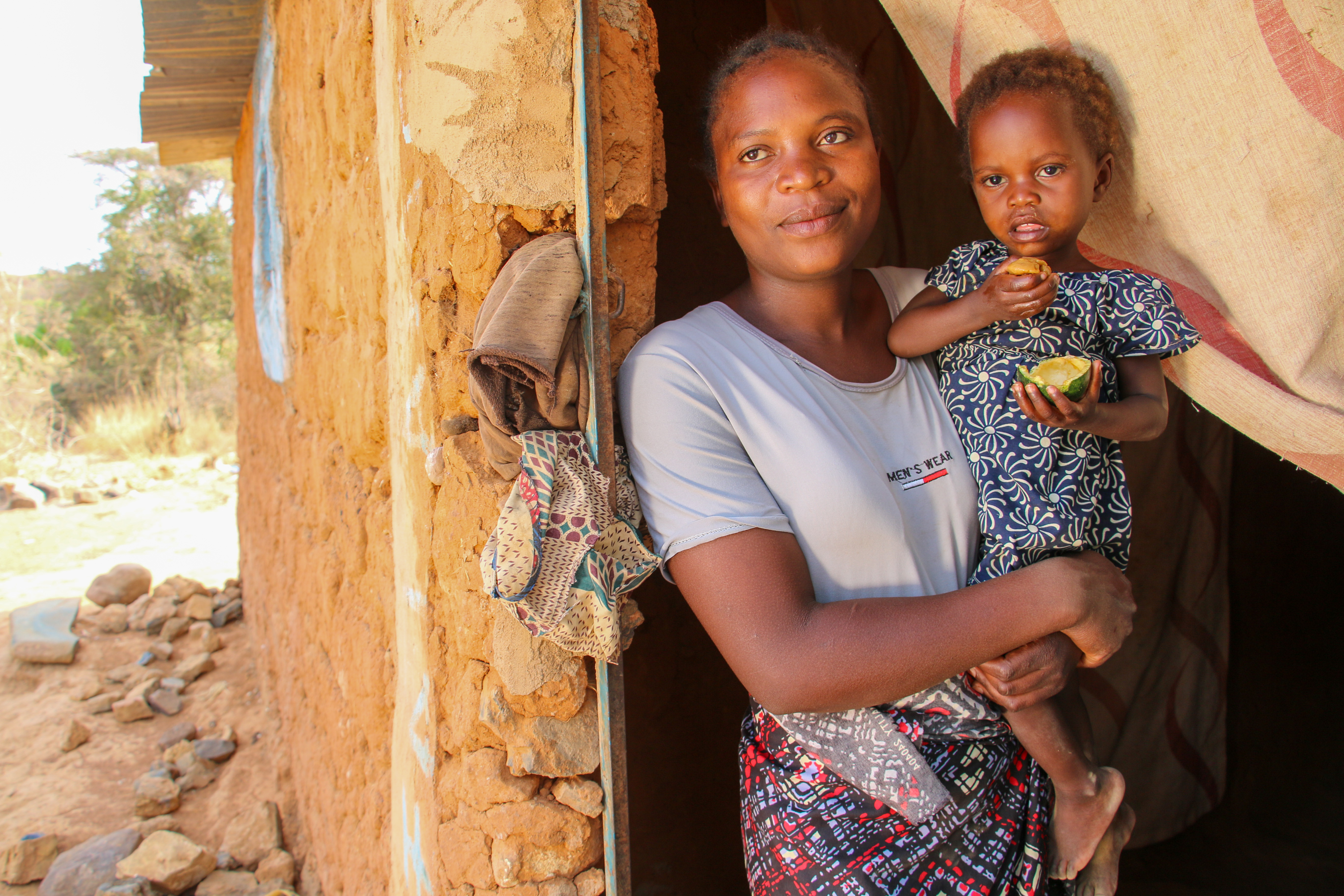
Her youngest daughter, Isabel, aged two, was recently diagnosed with moderate acute malnutrition (MAM), which left Juliana embarrassed, as it reflects the reality of hardship and lack of food diversity that she faces at home.
"People often tell us that we have to look after our children more because they're malnourished, but I tell them it's not because we don't, it's because we don't have enough food," Juliana complains.
Most days, when Juliana has no work, she sits outside her one-bedroom iron sheet house, watching her children, her face etched with worry. She knows she has done everything she could to feed her children, but it wasn't enough.
In addition to this scenario of extreme food insecurity, with little prospect of change, Juliana laments the fact that she is getting less and less milk to breastfeed little Isabel. And the fear of not having enough to eat is constant.
"I'm breastfeeding, but I feel like I don't have enough milk anymore," Juliana says. "I'm only breastfeeding because if I wean her, I won't have enough food to give her and she'll become more malnourished than she already is. With just a little strength from my milk, she might be able to get through the day just like that, without eating anything."
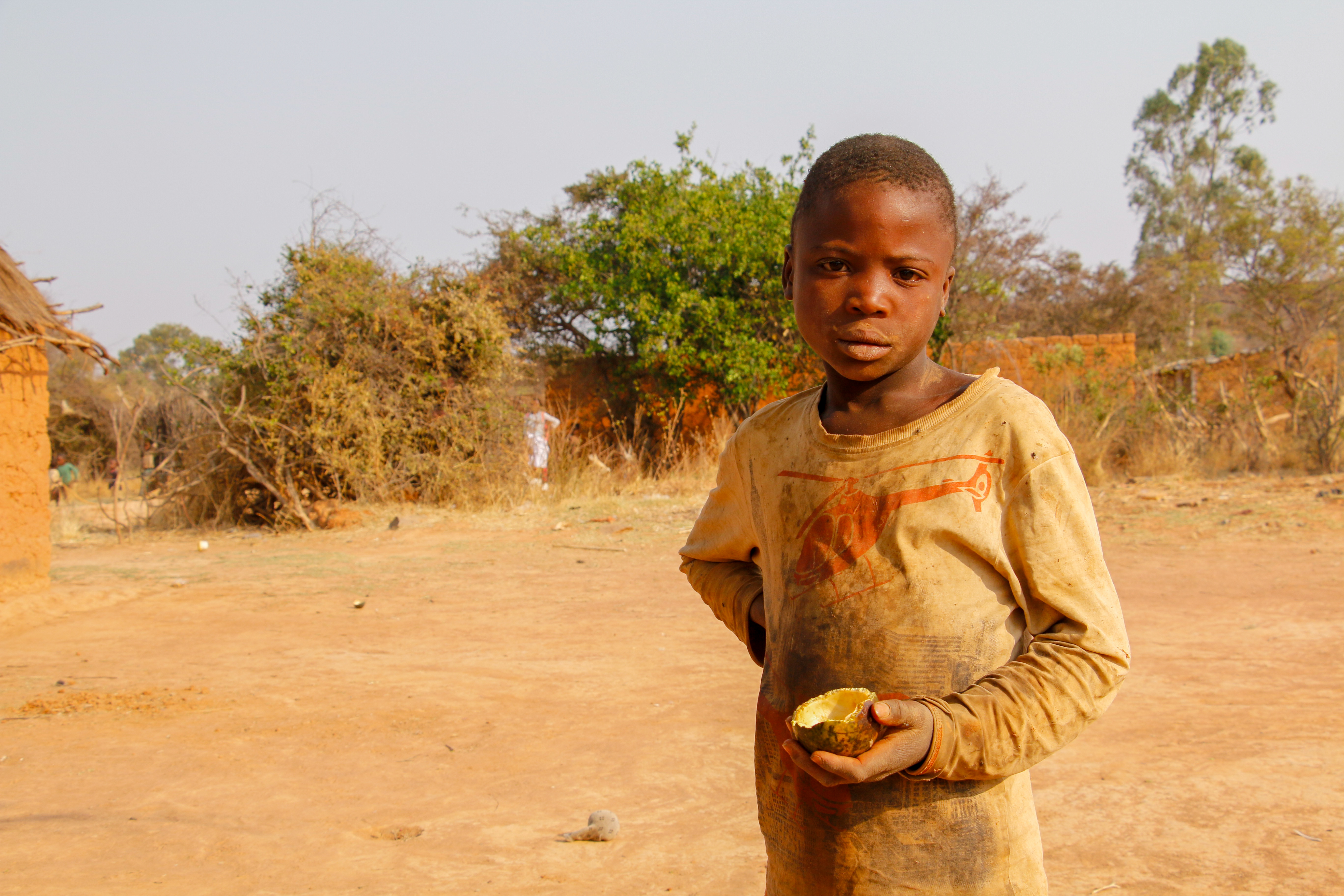
Vladimiro, Juliana's 10-year-old eldest son, is aware of his mother's struggle to feed him and his siblings. He often ventures out to find wild fruits, knowing which trees and bushes bear edible ones. He spends hours searching for them.
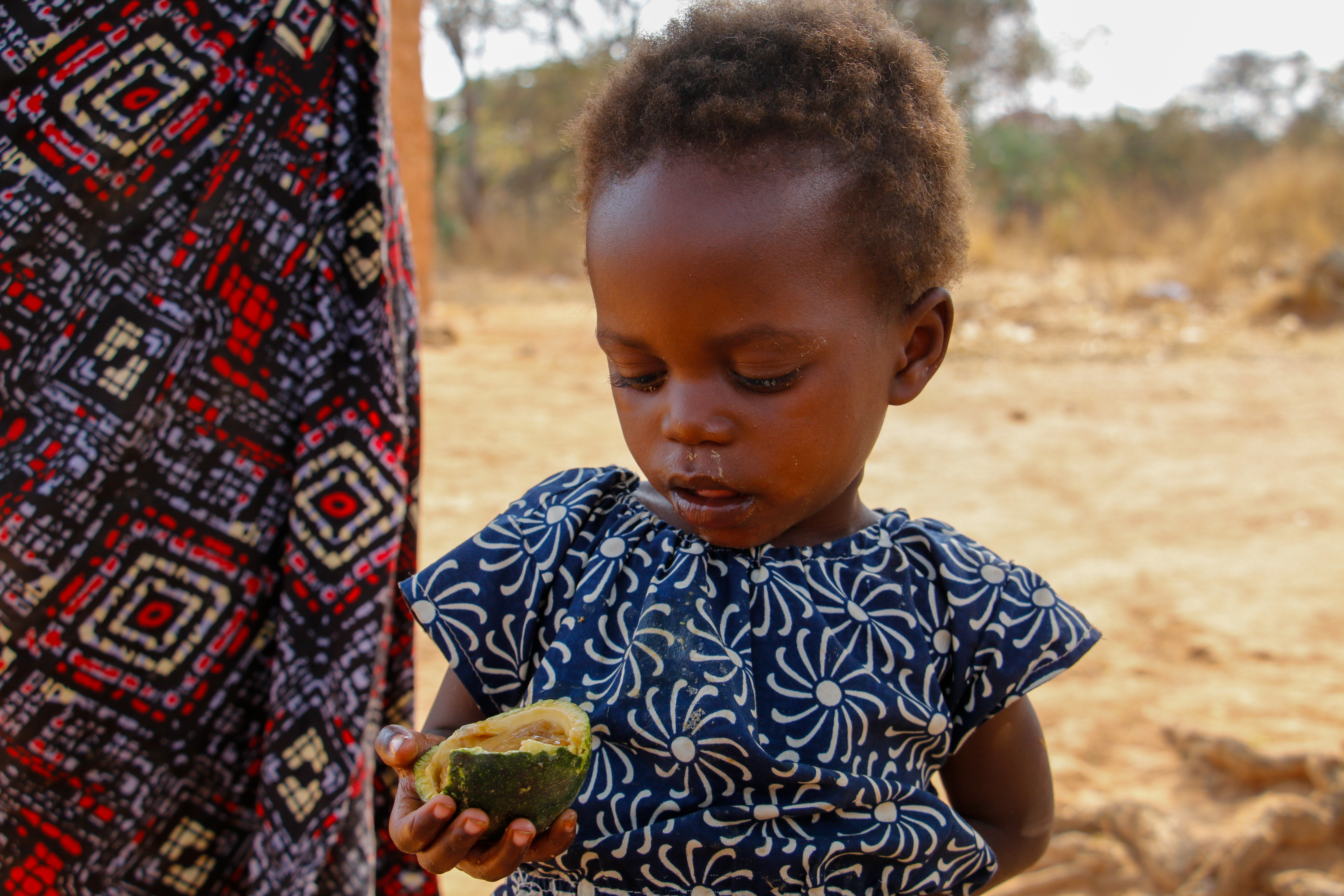
Sometimes, the fruits are not fully ripe, but he picks them regardless and brings them home to his family. The children eat the fruits to quell their hunger, and Vladimiro always ensures that his little sister, Isabel, eats first.
“I am not afraid of falling of trees,” Vladimiro says, “I am have being doing this for a while”.
This has been Juliana's life for the past few years—her children dreaming of a time when they would have enough food to eat, and she dreaming of a time when she would be able to provide for her children.
However, her fortunes changed three months ago, when she and her children started attending the Community Kitchen, an initiative of World Vision Angola, run by the Hunger Response project, which is funded by WVUS. There, Juliana and Isabel receive a hot meal, one of more than 300 served daily. In total, 120 children with moderate acute malnutrition, 45 pregnant and breastfeeding women, and more than 400 children who are part of the household are benefiting.
"This kitchen is very important to us. Even with this porridge, we only get one and a half meals a day. If we don't, we just have to boil some lombi* and eat it," Juliana says with sadness in her eyes.
Once a month, the Hunger Response project also distributes 8 kg of premix (made with corn flour and soy flour), 1kg of sugar, and 1 liter of vegetable oil to the families of malnourished children, so that they can cook their porridge at home.
The help given by the World Vision Angola with the distribution of premix flour ensures that the family can increase the number of meals per day, but it's still not enough.
When Juliana's children don't go to the community kitchen, they often spend the day without lunch. Vladimiro, says that when he goes to school without having eaten, he feels weak and has difficulty learning. He also recognizes that
"the best part of the day is going to the community kitchen to eat the porridge."
Juliana's story is just one of many in Angola, where hunger and malnutrition are a daily reality for millions of people. The drought has exacerbated the situation, leaving many families without enough to eat. Community kitchens like the one that Juliana her children attend are a lifeline for these families, providing them with much-needed food and nutrition.
In total, World Vision Angola’s Hunger Response project is responsible for running ten Community Feeding Centers, spread across the municipalities of Humpata, Chibia, and Ombadja. On average, 314 hot meals are served each day in each kitchen.
* lombi: pumpkin or beans leaves